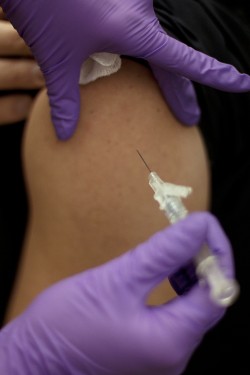They’re no longer teenagers, and they’re not yet carrying the weight of the world. Let’s face it: those in their 20s often have it pretty good. It’s a time of self-discovery and…whatever. You know the drill here. I’m not going to blather to you about how great it is to be in your twenties.
Pit stop for the 20s
They’re no longer teenagers, and they’re not yet carrying the weight of the world. Let’s face it: those in their 20s often have it pretty good. It’s a time of self-discovery and…whatever. You know the drill here. I’m not going to blather to you about how great it is to be in your twenties.

I’m here to talk to you about how it’s not always filled with buckets of sunshine and rainbows.
The fact is that while people in their 20s as a whole are pretty healthy, there are some health-related issues that this age group ought to pay some mind.
First of all, there’s the whole “mental health” thing. The brain doesn’t stop developing at 18. In fact, the brain is generally not finished developing until one is in his mid-20s. Because of this, it is in the early 20s when most mental health issues rear their ugly heads.
Depression is the most common of these, with 11 percent of women and 6 percent of men in their twenties suffering from this disease. Anyone who finds their day-to-day life disrupted by some change in brain chemistry—whether it be a lack or excess of energy or thoughts of a disturbing nature—should see a doctor.
Second, there’s the risk of sexually transmitted diseases (something covered extensively in the rest of this issue) and genital cancers. Men are at an increased risk of developing testicular cancer in their 20s, and women share similar statistics for cervical cancers. Both sexes should have annual screenings performed to detect abnormalities in these tissues and get treatment as early as possible to prevent long-term damage.
Breast cancer can also take hold during the 20s, so women should be screened once every three years in their 20s. On the other hand, prostate cancer is much, much rarer in young men, so they don’t necessarily need to be screened for it.
Third (and last) is the issue of obesity. Balancing work, school, socializing and other commitments is anything but easy, and maintaining a healthy lifestyle can be difficult. It’s so easy to let exercise fall to the side, and most folks in their early twenties still haven’t quite figured out how to cook healthy, balanced meals.
But it’s something people in their 20s especially should do. As one’s metabolism slows down, it is easy to gain weight without realizing it. Eating healthily and maintaining a regular exercise routine is frustrating when you have to work yourself out of a rut. It’s easier to keep in the habit to avoid this.
And diabetes, hypertension and heart problems are all very real consequences of failing to live a healthy lifestyle when you’re young. Best to prevent them altogether.
It’s great to be in your 20s. But take care to ensure that you live them well. You’re not invincible, after all.




